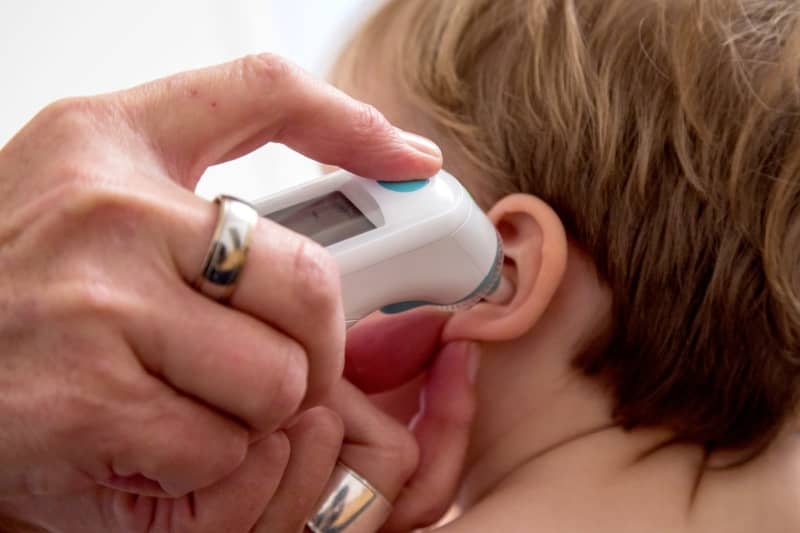Your young child has a fever. What should you do and when to worry

Your young child's cheeks are flushed, the look in their eyes listless and appetite gone. All signs point to a fever.
Fever is a clever mechanism used by the body to defend itself against many medical conditions, including middle ear, respiratory and gastrointestinal infections common in childhood. The temperature hike turns up the heat on bacteria and viruses, making it harder for them to survive and multiply.
But the younger the child is, the more their parents worry when the little one's temperature keeps rising, especially if they show no interest in eating and drinking. Dr Burkhard Lawrenz, spokesman for the prevention panel of the Cologne-based Professional Association of Paediatricians (BVKJ), has some advice for them:
When should you take a child with a fever to a doctor?
This depends on the child's age. "It's very unusual to develop a fever during the first three months of life - with the exception of the days immediately after a vaccination," Lawrenz says. Therefore, "a child under 3 months of age should be seen by a paediatrician on the same day [that the fever starts]."
During the rest of a child's first year, it's generally sufficient to visit a doctor within 24 hours of a fever's onset, he says. As regards older children, "parents can wait three days to see whether the fever subsides."
A child is said to have fever when their body temperature is 38.5 degrees Celsius or higher. For infants in the first weeks of their lives, it's 30 degrees or higher, according to the German Federal Centre for Health Education (BZgA).
What should you do if the child doesn't want to eat?
Loss of appetite is a perfectly normal reaction by the body to an infection, Lawrenz says. "All of its energy is aimed at fighting the illness. There's little left for digestion."
Although many parents worry that their child can't get well if they don't eat anything, "this is false," he says. "The child should of course eat if they have an appetite, but eating isn't necessary."
If the child turns down meals, parents should make sure that their offspring ingests some salt, however, since important minerals are excreted in sweat and urine. You can give them a spoonful of broth, a salt stick or a soda cracker, suggests Lawrenz.
Drinking plenty of fluids is far more important than eating, he emphasizes. The child's body can better absorb small amounts in frequent intervals than a large amount all at once.
It's also important that they ingest "some sugar for their energy metabolism," Lawrenz says. It can be a little apple juice mixed with sparkling water, or slightly sweetened tea. Or if the child has a bit of an appetite, then a piece of banana, a biscuit or piece of toast with jam.
When is it a good idea to give the child a fever reducer?
Lawrenz recommends using fever-reducing drugs such as paracetamol or ibuprofen sparingly - "only when the child persistently feels unwell, the fever won't go down by itself and they're not drinking anything."
Or when they have pain, because these drugs not only reduce fever, but also alleviate a headache and muscle aches.
Parents should pay more attention to the child's condition than the thermometer reading, Lawrenz advises. "There are children with a fever of 40 degrees who nevertheless play happily and drink enough fluids," he notes, and says that in such cases parents needn't give the child a fever reducer.
A fever reducer that shouldn't be given to children under the age of 12 is acetylsalicylic acid (aspirin), which has been linked to Reye's syndrome, a rare, life-threatening condition that causes swelling in the liver and brain.
What if the child remains quite ill?
Parents should be alarmed if the fever doesn't go down despite the use of fever-reducing drugs, or if it does but "the child continues to look like a rag doll, feels very unwell, cries and won't drink anything," Lawrenz says.
These, he warns, may be signs of a bacterial infection that the child has developed on top of what originally made them ill. A prompt examination by a paediatrician is imperative, because such an infection - treatable with antibiotics - can lead to a severe case of pneumonia.


